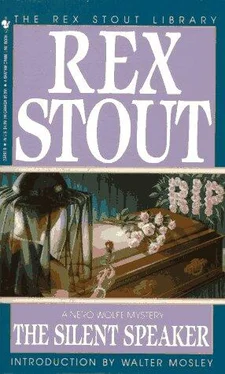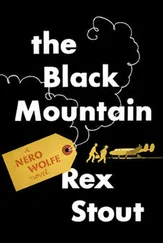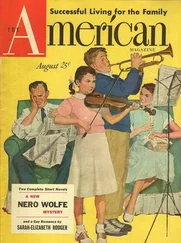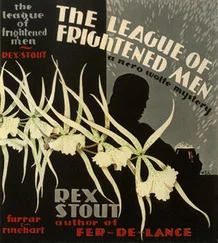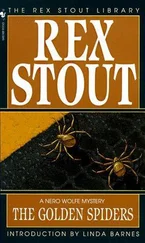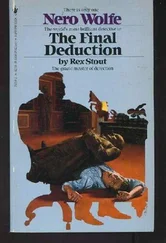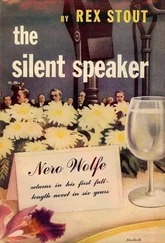Rex Stout - The Silent Speaker (Crime Line)
Здесь есть возможность читать онлайн «Rex Stout - The Silent Speaker (Crime Line)» весь текст электронной книги совершенно бесплатно (целиком полную версию без сокращений). В некоторых случаях можно слушать аудио, скачать через торрент в формате fb2 и присутствует краткое содержание. Жанр: Старинная литература, en-GB. Описание произведения, (предисловие) а так же отзывы посетителей доступны на портале библиотеки ЛибКат.
- Название:The Silent Speaker (Crime Line)
- Автор:
- Жанр:
- Год:неизвестен
- ISBN:нет данных
- Рейтинг книги:5 / 5. Голосов: 1
-
Избранное:Добавить в избранное
- Отзывы:
-
Ваша оценка:
- 100
- 1
- 2
- 3
- 4
- 5
The Silent Speaker (Crime Line): краткое содержание, описание и аннотация
Предлагаем к чтению аннотацию, описание, краткое содержание или предисловие (зависит от того, что написал сам автор книги «The Silent Speaker (Crime Line)»). Если вы не нашли необходимую информацию о книге — напишите в комментариях, мы постараемся отыскать её.
The Silent Speaker (Crime Line) — читать онлайн бесплатно полную книгу (весь текст) целиком
Ниже представлен текст книги, разбитый по страницам. Система сохранения места последней прочитанной страницы, позволяет с удобством читать онлайн бесплатно книгу «The Silent Speaker (Crime Line)», без необходимости каждый раз заново искать на чём Вы остановились. Поставьте закладку, и сможете в любой момент перейти на страницу, на которой закончили чтение.
Интервал:
Закладка:
The doorman had been blowing his whistle, and a taxi on its way south had swerved and was stopping at the curb. The doorman opened the door and O’Neill got in, and the taxi slid away. Herb got into gear and we moved.
“This,” Herb said, “is the acme. The absolute acme. Why don’t we just pull up to him and ask where he’s going?”
“Because,” I said, “you don’t know an acme when you see one. He has no reason at all to think we’re following him unless he has been alerted, and in that case nothing would unalert him and we are lost. Keep back a little more-just enough not to let a light part us.”
Herb did so, and managed the light stops as if his heart was in it. With the thin traffic of Sunday morning, there were only two of them before we got to Forty-sixth Street, where O’Neill’s cab turned left. One block over, at Lexington Avenue, it turned right, and in another minute it had stopped at the entrance to Grand Central Station.
We were two cars behind. Herb swung to the right and braked, and I stepped out behind a parked car and grinned at him. “Didn’t I tell you? He’s hopping it. See you in court.” As soon as O’Neill had paid his driver and started across the sidewalk I left cover.
I was still selling it short. What I would have settled for at that stage was a ride out to Greenwich to join a week-end party for some drinks and maybe poker. At any rate, O’Neill didn’t seem to be in any doubt as to what he would settle for, for he marched down the long corridor and across the concourse of the station like a man with a destination. He gave no sign of suspecting that anyone had an eye on him. Where he finally wound up was not one of the train entrances, but the main parcel room on the upper level. I lingered at a distance, with a corner handy. There were several ahead of him and he waited his turn, then handed in a ticket, and in a minute or so was given an object.
Even from where I stood, about thirty feet off, the object looked as if it might be of interest. It was a little rectangular leather case. He grabbed it up and went. I was now somewhat less interested in keeping my presence undetected, but a lot more interested in not losing him, so I closed up some, and nearly stepped on his heels when he suddenly slowed up, almost to a stop, put the case inside his topcoat, got his arm snugly around it, and buttoned the coat. Then he went on. Instead of returning to the Lexington Avenue entrance he went up the ramp toward Forty-second Street, and when he got to the sidewalk turned left, to where the taxis stop in front of the Commodore Hotel. He still hadn’t spotted me. After a short wait he snared a cab, opened the door and got in, and reached to pull the door shut.
I decided that would not do. It would have been nice to know what address he would give the driver if there were no interruptions, but that wasn’t vital, whereas if I lost contact with that leather case through the hazards of solo tailing I would have to get a job helping Hattie Harding sew on buttons. So I moved fast enough to use a hand to keep the door from closing and spoke:
“Hello there, Mr. O’Neill! Going uptown? Mind giving me a lift?”
I was on the seat beside him, and now, willing to do my share, pulled the door shut.
I am not belittling him when I say he was flustered. It would have flustered most men. And he did pretty well.
“Why, hello, Goodwin! Where did you come from? I’m-well, no, the fact is I’m not going uptown. I’m going downtown.”
“Make up your mind,” the driver growled through at us.
“It doesn’t matter,” I told O’Neill cheerfully. “I just want to ask you a couple of questions about that leather case that’s under your coat.” I said to the driver, “Go ahead. Turn south on Eighth.”
The driver was glaring at me. “It’s not your cab. What is this, a hard touch?”
“No,” O’Neill told him. “It’s all right. We’re friends. Go ahead.”
The cab moved. There was no conversation. We passed Vanderbilt and, after waiting for a light, were crossing Madison when O’Neill leaned forward to tell the driver:
“Turn north on Fifth Avenue.”
The driver was too hurt to reply, but when we got to Fifth and had a green light he turned right. I said:
“All right if you want to, but I thought we would save time by going straight to Nero Wolfe’s place. He will be even curiouser than I am about what’s in that thing. Of course we shouldn’t discuss it in this taxi, since the driver doesn’t like us.”
He leaned forward again and gave the driver his home address on Park Avenue. I thought that over for three blocks and voted against it. The only weapon I had on me was a pen-knife. Since I had been watching that entrance since eight o’clock it was unlikely that the NIA Executive Committee was assembled in O’Neill’s apartment, but if they were, and especially if General Erskine was with them, it would require too much exertion on my part to walk out of there with that case. So I spoke to O’Neill in an undertone:
“Lookit. If he’s a public-spirited citizen, and if he hears anything that gives him the idea this is connected with murder, he’ll probably stop at the first cop he sees. Maybe that’s what you want too, a cop. If so you will be glad to know that I don’t like the idea of your apartment and if we go there I’ll display a license to that doorman, put my arms around you, and make him call the Nineteenth Precinct, which is at 153 East Sixty-seventh Street, Rhinelander four, one-four-four-five. That would create a hubbub. Why not get rid of this eavesdropper and talk it over on a bench in the sunshine? Also I saw the look in your eye and don’t try it. I’m more than twenty years younger than you and I do exercises every morning.”
He relinquished the expression of a tiger about to leap and leaned forward to tell the driver:
“Stop here.”
Although I doubted if he carried shooters, I didn’t want him fooling around his pockets, so I settled with the meter myself. We were at Sixty-ninth Street. After the cab had rolled off we crossed the avenue, walked to one of the benches against the wall enclosing Central Park, and sat down. He was keeping his left arm hooked tight around the object under his coat.
I said, “One easy way would be for me to take a look at it, inside and out. If it contains only black market butter, God bless you.”
He turned sideways to regard me as man to man. “I’ll tell you, Goodwin.” He was choosing his words. “I’m not going to try a lot of stuff like indignation about your following me and that kind of stuff.” I thought he wasn’t choosing very well, repeating himself, but I was too polite to interrupt. “But I can explain how I happen to have this case, absolutely innocently-absolutely! And I don’t know any more than you do about what’s in it-I have no idea!”
“Let’s look and see.”
“No.” He was firm. “As far as you know, it’s my property-”
“But is it?”
“As far as you know it is, and I have a right to examine it privately. I mean a moral right, I admit I can’t put it on the ground of legal right because you have offered to refer it to the police and that is of course legally correct. But I do have the moral right. You first suggested that we should go with it to Nero Wolfe. Do you think the police would approve of that?”
Читать дальшеИнтервал:
Закладка:
Похожие книги на «The Silent Speaker (Crime Line)»
Представляем Вашему вниманию похожие книги на «The Silent Speaker (Crime Line)» списком для выбора. Мы отобрали схожую по названию и смыслу литературу в надежде предоставить читателям больше вариантов отыскать новые, интересные, ещё непрочитанные произведения.
Обсуждение, отзывы о книге «The Silent Speaker (Crime Line)» и просто собственные мнения читателей. Оставьте ваши комментарии, напишите, что Вы думаете о произведении, его смысле или главных героях. Укажите что конкретно понравилось, а что нет, и почему Вы так считаете.
